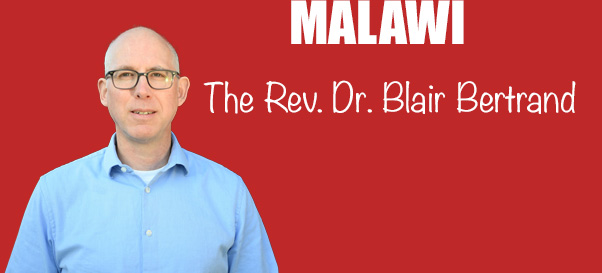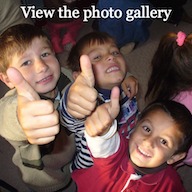
One of the roles that I play at Zomba Theological College (ZTC) is the Director of Research and Educational Quality Assurance (DREQA). I’m a bit ambivalent about the role because I have been given the task of ensuring that our research and our teaching are up to standard. The question that causes my ambivalence is, “Whose standards?” I’m the only white person on staff and there is an implicit assumption that the standards are Western academic. At times it isn’t even implicit. The National Council of Higher Education explicitly wants Malawian institutions of higher education to be as good as universities around the world. This isn’t right; Malawi should have its own standards of education.
Yesterday some of my ambivalence was reframed. The college received a very generous gift. Given in honour of Rev. Dr. Joseph Kang and his wife Hanna Kang, the gift was most of the personal library of Dr. Herman Waetjen. A New Testament scholar based in California, Waetjen was Dr. Kang’s doctoral supervisor. Even though he had never been here in Malawi, Dr. Waetjen gifted approximate $25,000 USD of books to the college.
 At the presentation of the gift, Dr. Kang read the following message from Dr. Waetjen:
At the presentation of the gift, Dr. Kang read the following message from Dr. Waetjen:
My Expectations and Hopes for the Books Sent to Zomba and Blantyre
Dear Brothers and Sisters in Christ! Thank you for receiving and accepting the books that my wife and I have sent you. It is a joyful privilege to share them with you. They were my friends. They worked with me during the 45 years that I taught at San Francisco Theological Seminary, and I worked with them. In truth, we worked together. For me these books were more than objects, more than things. We had a warm friendship with each other! We had a warm friendship with each other because in and through these books I was reading ideas, insights, and interpretations by human beings like myself. Their authors were sharing with me the knowledge they acquired through their research, teaching, and the classroom interactions they had with their students. I was not only confronted with the knowledge they wanted to share with me. Indirectly I was also encountering them as human beings who, to one extent or another, were integrating their faith and life experiences into the books they were writing; and that added to the warm friendship with them that I enjoyed through their books.
Books, therefore, are more than things. In and through books we meet human beings like us! And as we meet these authors in their books, they are also sharing with us the books they have used and, at the same time, the men and women who wrote them and shared their knowledge, their faith and life experiences. So in reading these books, I was also encountering earlier generations of scholars and historians, and, to one extent or another, learning from them. They too became my friends, but they also became my ancestors. They existed before me; they were confronted with many of the same issues and problems of faith and life in their time and place, and, therefore, they may still have something to say to me. So I want to honor and respect them.
All these books come to you out of the past, some out of the recent past, some out of the distant past. The knowledge they give us must be related to our circumstances in the present, to our crises, to the issues of justice and equality that we are confronting in our own context. We want to learn from them, but we must interact with them in dialogue, correlating whatever we have learned from them with the truths that that we have gained through our own study and research. For that we very much need the guidance of God’s indwelling Spirit. In the Gospel according to John 16:12-13, Jesus said to his disciples:
“I still have many things to say to you, but you cannot bear them now. When the Spirit of truth comes, he will guide you into all the truth; for he will not speak on his own, but will speak whatever he hears, and he will declare to you the things that are to come.”
May these books be your friends! May they serve you as best as they can under their time-bound limitations. May they even come to be your ancestors, sharing with you their wisdom, as you honor and respect them, but also as you take your God-given responsibility to interpret the Scriptures in your time and place in which you live and work.
Herman C. Waetjen

This short note, which was very well received, reframes my role in a number of ways. First, when he introduces the idea of books not being objects but somehow being the embodiment of a human person, something to befriend and not something to dissect, Waetjen introduces a personalist form of knowledge. Knowledge here is not some kind of sterile objectivity but is the encounter of two human persons seeking truth together. The standard here is not determined by cold scientism but by the encounter of two people. How much does this encounter deepen our knowledge of the other, of ourselves, and of the world around us? This seems like a worthy standard to hold ourselves to.
Second, in a move surely intended to resonate with an African audience, Waetjen reframes books as embodiments of our ancestors. The cynic could say that Waetjen is simply playing to African stereotypes of ancestor worship. Or worse. This could be yet another attempt by a white academic to impose particular forms of knowledge on black students. I choose to see it differently and I recognize I might be naïve in this. Waetjen invites students into a tradition, a conversation about what the Bible means that stretches over centuries. He does not offer a closed academic canon but presents centuries of accumulated wisdom and knowledge. The Holy Spirit must guide us into the future, taking this wisdom and knowledge from then into the now. My sense is that Waetjen, near the end of his life, would delight in nothing more than if these books were to fund new understandings for future generations. And that is the question of standard, “In what way do these ancestors help us to discern what God is leading us today?”
Finally, there was something poignant in Dr. Kang presenting this brief note. As the pictures above indicates, the current principal the Rev. Dr. Takuze Chitsulo received the books on behalf of the college. In his speech, Rev. Dr. Chitsulo acknowledged the many contributions of the Kangs. Dr. Kang had been Principal; Mrs. Kang served as the Librarian of the college. Here was tradition, a handing on, from Waetjen to Kang to Chitsulo. Appropriately because he is an Old Testament scholar, Rev. Dr. Chitsulo noted that the prophets always received the tradition so that they could speak a word from God in their own time. His own work on relating the rhetoric of Habakkuk to the Malawian political scene does just this. Chitsulo took the Biblical interpretation tradition he received and transformed it for the moment. In what ways can our tradition fund new knowledge?
Of course one short note cannot totally reframe the question of educational standards in Malawi away from using colonial to indigenous criteria. But it is a good start. ZTC is grateful for the gift of the books, a gift of friends, ancestors, and tradition that will lead to even greater things for ZTC.

After posting yesterday, Dr. Kang sent me an additional note about Dr. Waetjen. I include it here in a slightly edited version:


